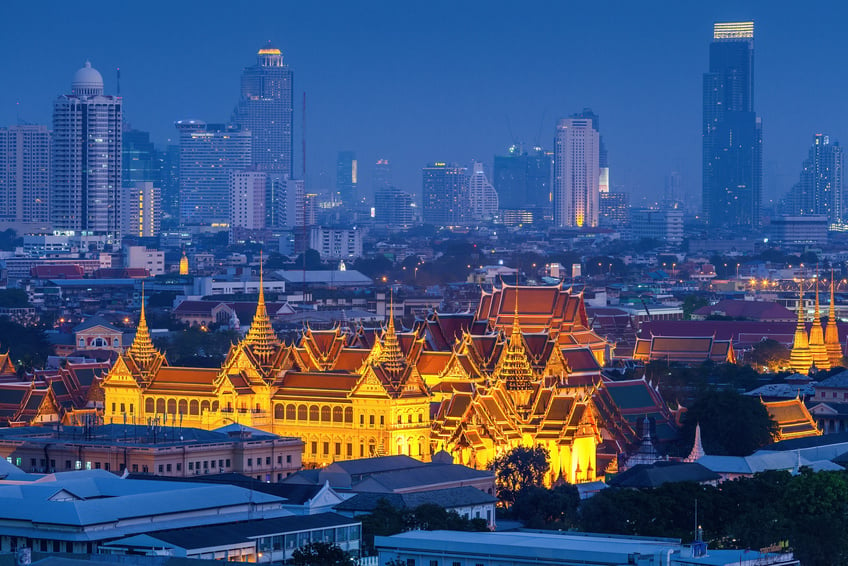The year 2022 marks a noteworthy year for a quantum leap in Thailand’s electric vehicle market. Against the backdrop of Thailand’s commitment to carbon neutrality and net-zero greenhouse gas emissions at COP26, combined with the unexpected uncertainty in oil and gas prices, Thailand’s EV market has accelerated to a new peak. Providing that the 30@30 goal under the national EV roadmap (i.e., to raise the proportion of zero-emission EVs to 30% of all domestic vehicle production by 2030) goes as planned, we take a look at what to expect in Thailand’s EV space, along with what has been happening during the first half of 2022.
Following years of market domination by the conventional automobile industry, EV technology is now emerging as an environment-friendlier alternative, opening up various new opportunities for businesses as well as consumers all around the world. EV development permeates the whole chain of the present automotive industry, from the manufacturing and distribution sectors to subscription and ride-sharing or ride-hailing businesses. To operate an EV business in Thailand, there are certain legal concerns you need to take into account.
Under the current regulation, a Good Manufacturing Practice (GMP) certificate obtained from the Food and Drug Administration (FDA) is a voluntary requirement for local medical device manufacturers. However, manufacturers of licensed medical devices and detailed notification medical devices must provide GMP certificates from the FDA or an ISO 13485 certificate issued by one of the official Certified Bodies as part of the documents for the registration of medical devices. These certificates are not required to manufacture and notify low-risk medical devices unless they are exported and certain certificates are required by the destination countries.
Advertising is a great way for business operators to connect with consumers, and advertisers today are able to reach more customers than ever before through the use of various media and channels (e.g., electronic, social media, brochures, newspaper advertising and TV advertising). In response to this, the Office of the Consumer Protection Board has deemed it necessary to step up its efforts to protect consumers. This article discusses the potential regulatory development that business operators should be aware of concerning the use of advertising that presents unsubstantiated claims or statements that are difficult to prove true.
In our third episode “Franchise Regulations – What to know about franchising business in Thailand”, our team discusses what it means to operate a franchise and limitations operators may face under competition law.
This series is the latest installment in our YouTube video chats which feature interesting key legal developments across various areas. This video is in Thai.
Anti-Money Laundering and Combating the Financing of Terrorism measures play an important role for financial institutions and specified non-financial businesses (collectively referred to as Reporting Entities), to combat money laundering and the financing of terrorism. The relevant AML/CFT laws, regulations and guidelines have been continuously improved in order to comply with international standards. To keep up with the dynamic and evolving regulatory developments, Baker McKenzie has issued this publication to provide an overview of Thailand’s AML/CFT regulations and guidelines.
In an article published for ELA briefing, Jon Tuck and Richard Cook discuss the latest Employment Appeal Tribunal decision considering the unlawful inducement relating to collective bargaining under section 145B of the Trade Union and Labour Relations (Consolidation) Act 1992.
Discussion about and around sustainable development is more critical now than ever as governments around the world have announced their commitment to achieve carbon neutrality and net zero greenhouse gas emissions during the 26th United Nations Climate Change’s Conferences of the Parties (COP 26) in Glasgow, and Thailand is no exception. Prime Minister Prayut Chan-o-cha announced Thailand’s commitment to become carbon neutral by 2050 and have net zero greenhouse gas emissions by 2065.
Many of us have heard the term “Metaverse,” which is commonly used to refer to the combination of technologies that allows us to access a virtual reality world or bring virtual reality into the physical world, as first mentioned in Neal Stephenson’s scientific novel “Snow Crash” (1992). The term “Metaverse” has become one of the biggest buzzwords over the past year, and recently we have seen tech giants striking deals to take part in the metaverse.
At present, certain promotional activities (e.g., sweepstakes, raffle games or random premiums) are subject to the Gambling Act, B.E. 2478 (1935), which require the business operator to get permission from the Department of Provincial Administration. The Gambling Act regulates all sweepstakes activities with a strict and complicated permission system. The Office of the Council of State has now updated the requirements under the Gambling Act by passing the Bill on Sweepstakes Activities in the Course of Business or Occupation to reduce the strict procedures and difficulties for business operators in arranging these promotional activities.



